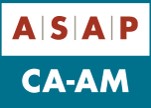
How Do You Really Engage Employees?
For the last several years organizations have become increasingly concerned about the 'engagement levels' of their employees. Research indicates that those employees who are highly motivated and vested in the success of their employers are willing to make the extra discretionary effort that results in:
- Better financial performance
- Higher customer satisfaction
- Higher levels of productivity
- Higher retention of top talent
In order to determine an organization's ratio of engaged to not engaged employees and to better understand the specific motivations of employees, several consulting firms have created 'employee engagement surveys' that measure such things as: Do I get to do what I do best every day? Do I have the opportunity to learn and grow on my job? Does my boss care about me? The results of these surveys can be used by managers to develop Action Plans that can improve the 'engagement culture' of their organizations.
But a new research study indicates that for 'knowledge workers", i.e. whose jobs require that they must productively create every day (e.g. researchers, marketers, programmers, etc.), there seems to be one element that keeps them proactively engaged in pursuing their goals: It is their ability to recognize that they have made progress on meaningful work that is the key to whether they bound into work everyday and don't worry that they are working well beyond 40 hours a week. Reuben Mark, former Chairman of Colgate-Palmolive once said in a speech to employees: "You can't get your people to come in and give their very best day in and day out just to make sure the stock price goes up. They have to believe they are doing work that matters...like supplying toothpaste a squirt at a time to impoverished families around the world."
So what is meaningful work? Well, to some extent it depends on the 'eye of the beholder'. What motivates me and drives my passion, may be different for you. But as leaders, our first task is to rally our employees around a vision that makes a difference to our customers, to our organizations, to our communities.
I was recently working with a group of product support and technicians who were bemoaning their role as 'second class citizens' in their company, compared to a group of advanced degree colleagues. At the team offsite-we asked them to reflect on the work they do for customers and to whom it is critically important that they do their work very well. Out of that discussion they crafted a Vision Statement that highlighted that they are the 'first responders" for customers who are depending on their individual and collective knowledge and responsiveness to solve their problems. We then had them define how they would measure whether they were providing 'best in class customer service' to these customers. These became their 'measures of success'.
I later talked with the Department Head about how important it will be for her to continuously focus on and recognize the team at team meetings and in public forums for the importance of their work and the progress they are making towards those customer service metrics that they created. The authors of the research study refer to this as the 'progress principle'...focus on and recognize positive progress towards specific and meaningful goals. The Harvard Business Review article which describes this research is titled "The Power of Small Wins" and can be found at this link: http://hbr.org/2011/05/the-power-of-small-wins/ar/1
Our daughter is a competitive swimmer and her coach continuously is pushing these swimmers to practice hard and drop their times. In a sport where winning and losing may depend on hundredths of seconds it is a challenge to sustain progressive positive progress. So he also provides them with a perspective on their progress and emphasizes that they need to keep focused on their performance trends, which should consistently be improving.
If you agree that the 'progress principle" can lead to an increase in employee engagement and performance, conduct your own assessment of whether you are leading your employees for real engagement by asking yourself these questions:
- Do we have an aspirational but achievable Vision Statement for our company, our division, our department?
- What is the 'buy-in" or commitment that our people have to achieving that Vision? Did they create the Vision Statement or was it just handed down to them?
- How will our people know if they are making progress towards achieving that Vision? What are the metrics that matter?
- How do we review progress? How do we recognize positive progress? How do we deal with set-backs or lack of progress?
- Do we have the 'right people on the bus', i.e. are they in the right jobs that will challenge them to be motivated by the work itself?
- Do our people have adequate resources to achieve their goals?
- Are they empowered to make decisions and take action? Are you there as a partner to remove obstacles?
- Do we have a culture that respects and encourages diversity and open exchanges of ideas?
Although this latest research was conducted with knowledge workers as its focus, I would argue that most employees, from the woman responsible for cleaning the school cafeteria to the executive who is trying to change his company's strategy, truly want to do work that matters, to make a contribution that is unique to their skills, and to work with others who respect them and are united towards achieving a common vision. So what are you doing to make that happen?
If you would like to learn more about EquiPro's leadership, team development and executive coaching programs, please contact EquiPro International at 212-421-1645 in New York or 813-415-3664 in Tampa.







